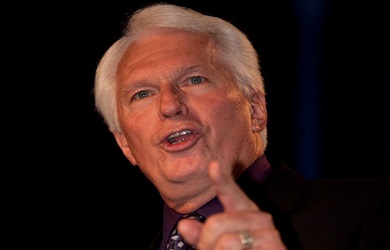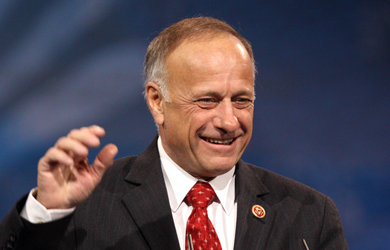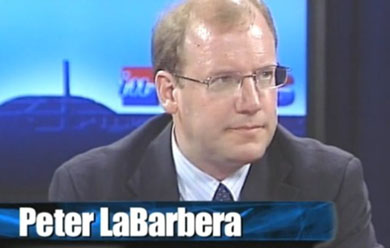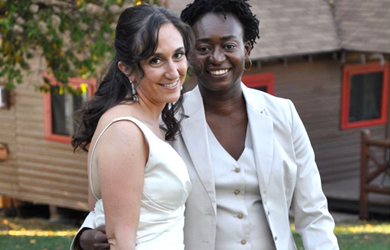Like the American Family Association’s Bryan Fischer, Peter LaBarbera of Americans for Truth is also demanding to know if Elena Kagan is a lesbian because “homosexuals’ privacy interests simply do not outweigh the public’s right to know about potential conflicts-of-interest in the lives of their judges and lawmakers”:
“If Kagan is practicing immoral sexual behavior, it reflects on her character as a judicial nominee and her personal bias as potentially one of the most important public officials in America. The popular mantra — even among conservatives — is that Kagan’s sexuality is ‘irrelevant.’ But a Justice Kagan would help decide some critically important constitutional issues dealing with: homosexual ‘marriage’ as a supposed civil right; religious liberty and freedom of conscience; and the First Amendment as applied to citizens’ right to oppose homosexuality. So it certainly matters if she, as a lifetime judge, could emerge as a crusading (openly) ‘gay’ advocate on the court.
“Kagan has a strong pro-homosexual record, including, as Harvard dean, fighting to keep military recruiters off the campus because the military bars homosexuals. Americans certainly have a right to know if her activism is driven by deeply personal motivations that could undermine her fairness as a judge.”
“Besides, in an era of ubiquitous pro-gay messages and pop culture celebration of homosexuality, it’s ridiculous that Americans should be left guessing as to whether a Supreme Court nominee has a special, personal interest in homosexuality.
“Given the important homosexual-related issues coming before the Supreme Court , Kagan should say so if she has a personal interest in lesbianism. Similarly, any legislator — especially one representing a conservative district — should come clean on the homosexuality question particularly if it is an ‘open secret’ like Mark Foley’s homosexuality (years before the page scandal) or becomes the subject of wide speculation.
“We appeal to Kagan and all potential “hiding-in-the-closet” public officials to answer the question: ‘Are (or were) you a practicing homosexual or do you consider yourself homosexual (gay)?’ Homosexuals’ privacy interests simply do not outweigh the public’s right to know about potential conflicts-of-interest in the lives of their judges and lawmakers.”








